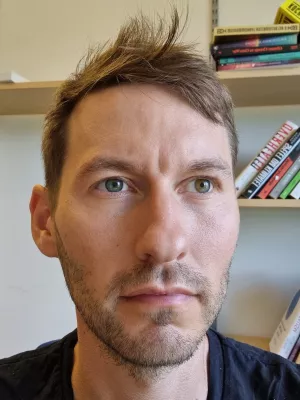
Kristoffer Ekberg
Associate senior lecturer

Taking flight to Utopian practice
Author
Summary, in English
In this chapter I study the ways in which people in intentional communities during the late 1970s related to geographies of escape, politics and engagement. The individuals taking part in the back-to-the-land communes of the 1960s and 1970s were seen as escapists by many in their time. They left the city and, therefore, were presumed to have left the political and societal spheres. Studies of communes often address their relationship to nature, or them being a part of the growing environmental movement. Rather than focusing on their relationship to what they met, I want to focus on the ways they negotiated their relationship to what they left. In the Swedish 1970s the theme of escape was a strong argument for those who were unsympathetic to the projects of back-to-the-land communes. Between the communes and their adversaries the relation between a centre, in which one was seen as active and part of society, and a periphery, where one was distanced from political and social life, was debated. The escapist idea did not resonate well within the communes who rather saw moving to the countryside as an alternative way in engaging with society and politics. This chapter analyse these questions from a series of interviews conducted in back-to-the-land communes during the late 1970s and early 1980s. The theme of escape actualizes questions of spatial transgression of the political sphere. The place of the commune had, in the members view, a lot to do with politics and engagement and their estrangement or flight could actually be seen as political acts. The question of escape is central to the feminist saying 'the private is political', which was a major part in the communal movement in Sweden.
Department/s
- History
Publishing year
2019
Language
English
Pages
219-228
Publication/Series
Dialectics of Space and Place across Virtual and Corporeal Topographies
Document type
Book chapter
Publisher
Brill
Topic
- History
Keywords
- 1970s
- Counter-urbanization
- Estrangement
- Intentional communities
- Place
- Utopia
Status
Published
ISBN/ISSN/Other
- ISBN: 9781848885103
- ISBN: 9789004370517

